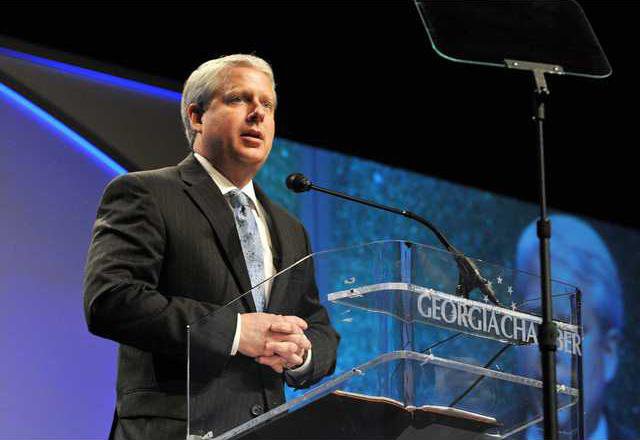ATLANTA - Gov. Nathan Deal announced plans Tuesday to create jobs, find solutions to the tri-state water wars and improve education.
Deal noted the three are pieces in the larger jigsaw puzzle of the state's problems.
"If you notice, the eggs were scrambled this morning, and the issues are scrambled as well," Deal said as he laid out his plans to a packed ballroom of business leaders and lawmakers during the Georgia Chamber of Commerce's annual Eggs & Issues breakfast at the Georgia World Congress Center.
"The true test of leadership is how we unscramble the issues because we can't unscramble the eggs," he said to a chuckling audience. "Our mantras all will be a repeat about job creation. And I want to work with you to create those jobs in this state."
Deal said he would create a Georgia Competitiveness Initiative that would form public-private partnerships for a business-friendly state.
"Economic development is key to bringing this state forward," he said. "We need to keep, grow and attract jobs."
Though negotiation teams with Alabama, Florida and Georgia continue to talk about water, Deal said he would direct the Georgia Environmental Finance Authority to create a Georgia water supply development program to create new reservoirs.
He designated $300 million over the next four years to create local-state partnerships for developing reservoirs, which he announced in his Jan. 12 State of the State address.
"We know this is essential to the economic advancement of the state," he said. "Water and schools are part of the puzzle that will make our economy competitive."
Additionally, Deal plans to create a number of advisory groups across the state to provide input on K-12 school policy and funding.
"I want to meet quarterly with teachers, local school superintendents, school board members and parents," he said. "It's imperative that we tap into the information, opinions and points of view of those who are involved."
Education will remain No. 1, Deal noted. He plans to create an additional education funding commissioner as $400 million in federal Race to the Top money rolls in during the next four years to help school districts. Hall County Schools and Gainesville City Schools will serve as
"incubators for improvement" alongside the other 24 school districts that supported the run for the grant, Deal noted.
"Our children must posses the skills to move the economy forward," he said. "The economy will depend on them 15 to 50 years from now."




